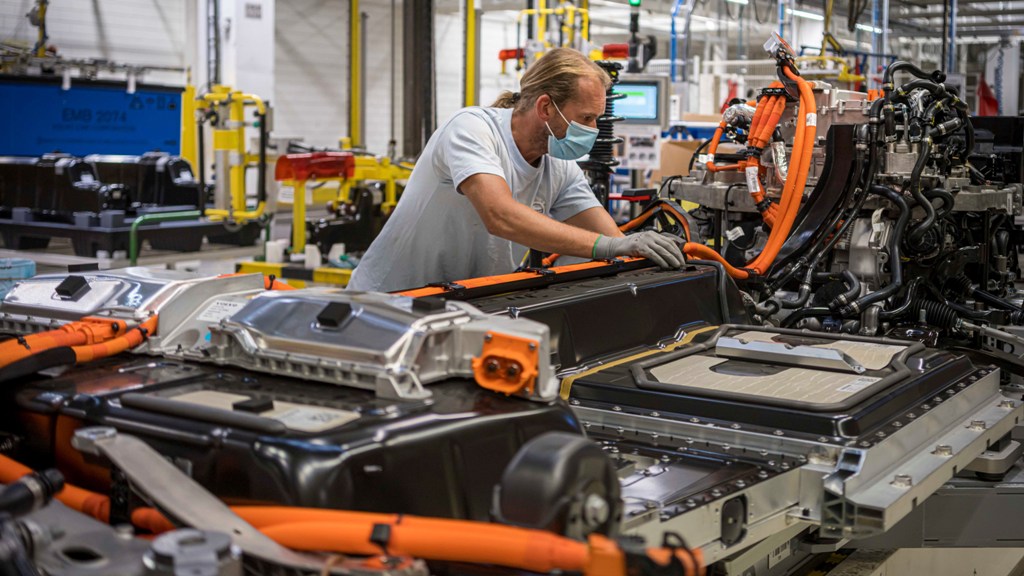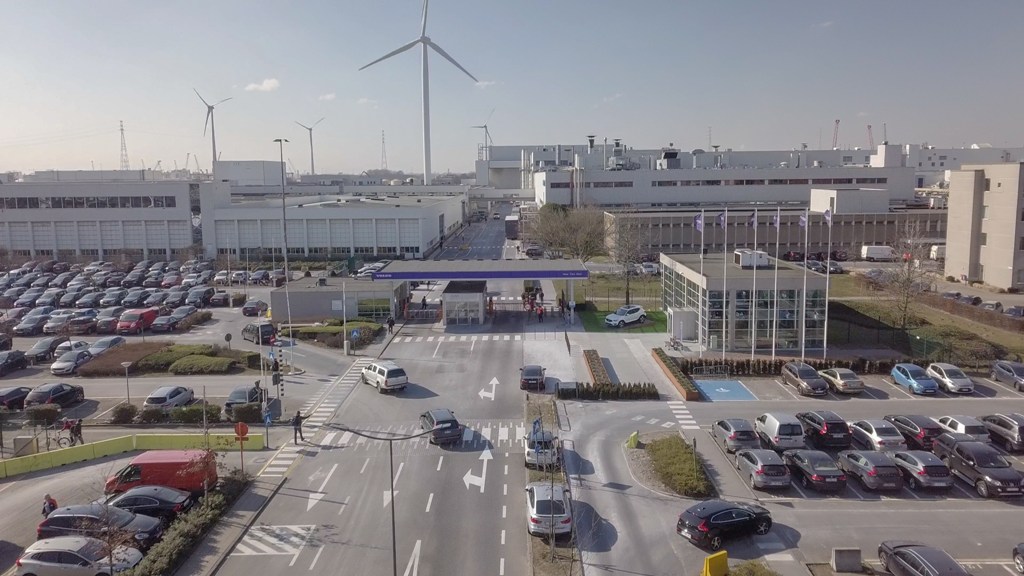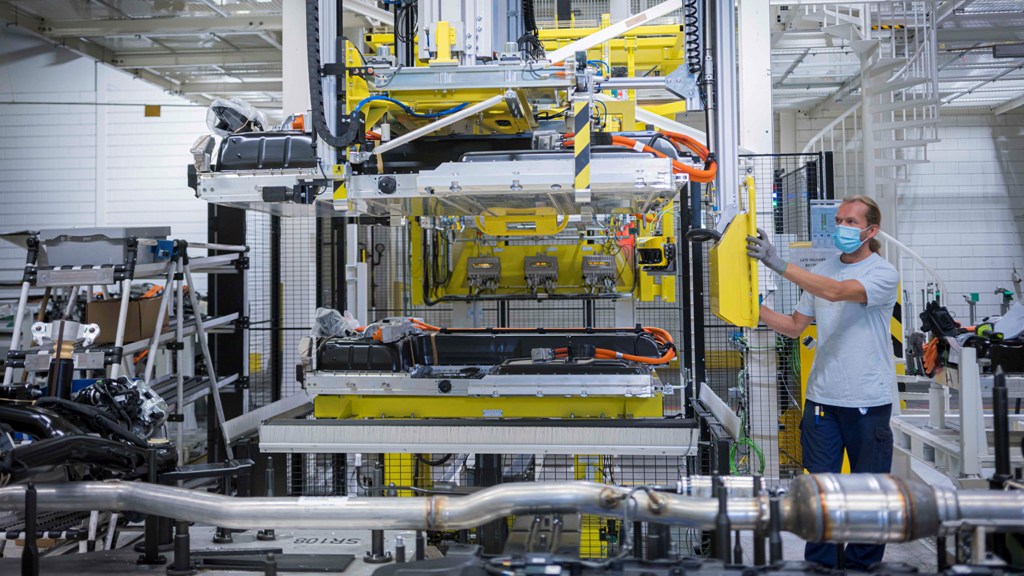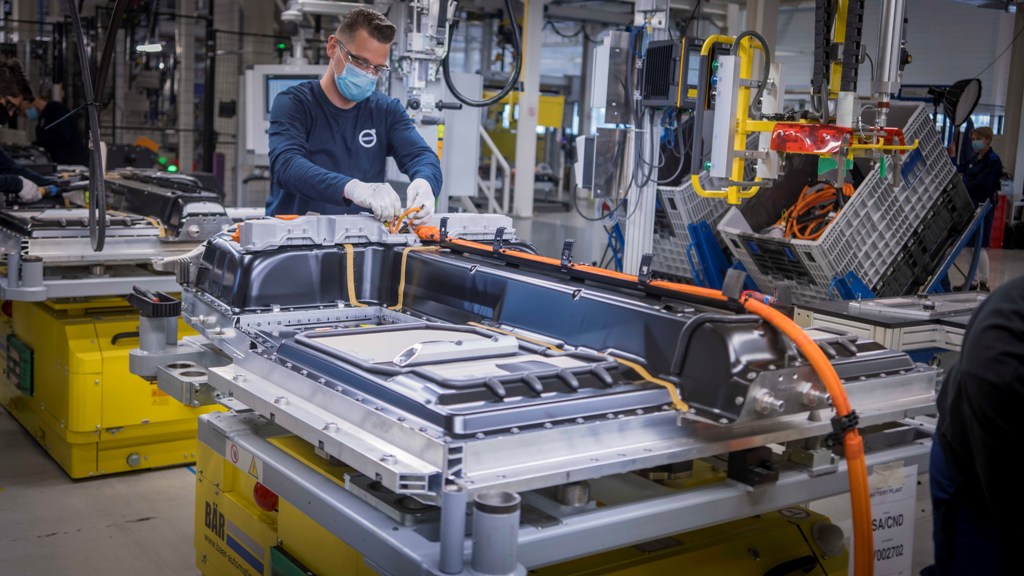Volvo Cars to Triple Electric Production Capacity at Its Plant in Ghent, Belgium
Volvo Cars is tripling electric car manufacturing capacity at its plant in Ghent, Belgium as it prepares to meet the fast-growing demand for its Recharge line-up of chargeable cars.

Recharge Models
The capacity increase comes as Volvo Cars also reports its full-year sales results for 2020, which showed strong demand for its Recharge models. The share of Recharge cars as a percentage of total sales more than doubled in 2020, compared to 2019.
By 2022, electric car capacity at the Ghent plant will have more than tripled from today’s levels and amount to around 60 per cent of the plant’s total production capacity.

First Fully Electric Car
Ghent is currently preparing to take a second fully electric Volvo model, based on the CMA modular vehicle architecture, into production later this year. The plant already builds the XC40 Recharge, the company’s first fully electric car, and a plug-in hybrid version of the XC40.
“Our future is electric, and customers clearly like what they see from our Recharge cars,” said Javier Varela, head of global industrial operations and quality. “As we continue to electrify our line-up and boost our electric production capacity, Ghent is a real trailblazer for our global manufacturing network.”
Volvo Cars is committed to becoming a premium electric car company, and in coming years, the company will launch several fully electric cars. By 2025, its global sales aim to consist of 50 per cent fully electric cars, with the rest hybrids.
Do You Know?
- You may have associated Volvo’s logo with the male symbol, but what you may not know is that it was never designed to resemble it. For centuries, this symbol has been used to represent many different things. Ancient chemists used it as the symbol for iron, and the ancient Romans used it as the symbol for Mars, their god of war. Because Volvo cars are designed with durability, safety, and strength in mind, the company chose this symbol as their logo.
While Ghent is the first of its global manufacturing network to start building fully electric cars, the company also has plans to increase electric car manufacturing capacity at its other facilities worldwide.
Last month, Volvo Cars also announced it would assemble electric motors at its powertrain plant in Skövde, Sweden, and plans to establish complete in-house e-motor production by mid-decade. It will invest 700 million SEK to this end in the coming years. The company is also investing significantly in the in-house design and development of e-motors for Volvo cars‘ next generation.
NEXT UP IN NEWS
- Can Artificial Intelligence Make the ‘Right’ Decisions on Roads?
- Samsung Teams up With Bahrain Raid Xtreme for Maiden Dakar Rally 2021
- Avtovaz to Start Production of the New Lada Niva Travel
- Volvo Cars to Produce Electric Motors at Its Powertrain Plant in Skövde, Sweden
- 2020 Opel Grandland X Named Autos Community’s SUV of the Year in Dubai
- TECHART GTstreet R Makes Thrilling Film Debut in the Netflix Action-Comedy Asphalt Burning




Comments are closed.